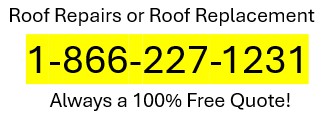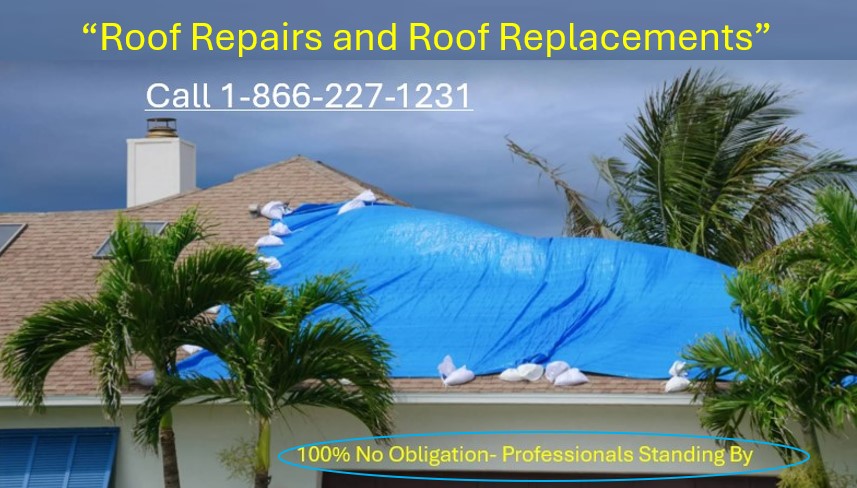Choose the Right Roofing Contractor...
Your roof is your home's most important protective system, and selecting the right contractor for repairs or replacement is a decision that impacts your home's safety, value, and appearance for decades. Unfortunately, the roofing industry has its share of unqualified operators and outright scammers. This guide provides the essential questions and verification steps to ensure you hire a reputable, skilled roofing professional for your project.

Why Contractor Selection Matters
The consequences of hiring the wrong roofing contractor can be severe and long-lasting:
- Improper installation: Even premium materials fail when installed incorrectly
- Voided warranties: Manufacturer warranties typically require proper professional installation
- Water damage: Poor workmanship often leads to leaks and interior damage
- Safety hazards: Structural issues can develop from substandard work
- Legal complications: Unlicensed or uninsured contractors leave you vulnerable to liability
- Financial loss: Incompetent work often requires complete do-overs at additional cost
Taking time to thoroughly vet potential contractors is your best protection against these risks.

Question 1: "Are You Properly Licensed, Insured, and Bonded?"
This fundamental question verifies basic professional credentials:
Licensing Requirements
- Most states require specific roofing contractor licenses
- Verify license status through your state's contractor board
- Confirm license class matches your project requirements
- Check for any disciplinary actions or limitations
Insurance Coverage
Request certificates of insurance that verify:
- General liability: Minimum $1 million coverage (protects your property)
- Workers' compensation: Covers worker injuries (protects you from liability)
- Company vehicles: Ensures coverage for any auto-related incidents
Bonding Protection
- Contractor bonds provide financial recourse if work is abandoned
- Bond amounts vary by state and project size
- Verify bond status with the issuing surety company
Red flag: Any contractor reluctant to provide license numbers or insurance certificates
Question 2: "How Long Have You Been in Business Locally?"
Longevity and local presence indicate stability and reliability:
Local Business Verification
- Physical business address (not just a P.O. box)
- Permanent office with regular business hours
- Local phone number (not just cell or toll-free)
- Business registration with chamber of commerce
- Established relationships with local suppliers
Longevity Considerations
- 5+ years suggests business stability
- Check business founding date on Better Business Bureau profile
- Research company history for name changes or reorganizations
- Ask about owner's personal experience if company is newer
Red flag: Recently established businesses with no verifiable history, especially after major storms

Question 3: "Can You Provide References from Similar Projects?"
Past performance predicts future results:
Effective Reference Checking
- Request 5-10 references for projects similar to yours
- Focus on projects completed within the past 1-2 years
- Ask for references in your specific neighborhood if possible
- Request both recent and older projects to verify longevity
- Check online reviews across multiple platforms
Questions for References
When contacting references, ask:
- Was work completed on schedule and within budget?
- Did the crew maintain a clean, safe work site?
- How was communication throughout the project?
- Were there unexpected costs or complications?
- How has the roof performed since installation?
- Would you hire this contractor again?
Red flag: Inability to provide multiple verifiable references
Question 4: "What Manufacturer Certifications Do You Hold?"
Top manufacturers carefully select and train their certified contractors:
Major Certification Programs
- GAF Master Elite (only 2% of roofers qualify)
- Owens Corning Platinum Preferred
- CertainTeed SELECT ShingleMaster
- Malarkey Certified Contractor
- Atlas Pro Plus
Benefits of Certified Contractors
- Required to maintain proper licensing and insurance
- Complete regular product training and installation education
- Often can offer enhanced manufacturer warranties
- Subject to installation inspections and quality oversight
- Demonstrate commitment to professional development
Red flag: Claiming to install premium products without corresponding manufacturer certifications
Question 5: "How Will You Protect My Property During the Project?"
Professional contractors have systematic property protection procedures:
Site Protection Practices
Look for contractors who detail:
- Landscape protection methods
- Debris containment systems
- Driveway and walkway shielding
- Window and siding protection
- Attic/interior dust control
- Magnetic nail sweep protocols
- Daily cleanup procedures
Equipment and Setup
Professional operations utilize:
- Dump trailers or designated debris areas
- Material delivery and staging plans
- Proper equipment for material transport
- Crew parking arrangements
- Bathroom facilities for workers
Red flag: Vague responses about property protection or cleanup procedures
Question 6: "What Does Your Warranty Cover and For How Long?"
Understand both manufacturer and workmanship warranties:
Manufacturer Warranties
- Standard shingle warranties: 25-50 years on materials
- Enhanced warranties: Available through certified contractors
- Transferability options for home sales
- Proration schedules and coverage limitations
- Registration requirements and documentation
Workmanship Warranties
- Industry standard: 2-5 years
- Premium contractors: 10+ years
- Coverage inclusions and exclusions
- Process for submitting warranty claims
- Company history of honoring warranty obligations
Red flag: Warranties that seem too good to be true or have extensive fine print exclusions
Question 7: "Can You Provide a Detailed Written Estimate?"
Professional estimates include comprehensive project specifications:
Essential Estimate Components
Look for detailed information about:
- Specific materials (manufacturer, product line, color)
- Project components (underlayment, flashing, ventilation)
- Removal of existing materials
- Decking inspection and repair allowances
- Installation methods and standards
- Project timeline and milestones
- Payment schedule and terms
- Permit acquisition and inspection procedures
- Clean-up and final inspection process
Price Considerations
- Be suspicious of outlier bids (much higher or lower than average)
- Understand what factors influence pricing
- Clarify what constitutes "extra work" and associated costs
- Determine deposit requirements (should not exceed 10-25%)
- Confirm final payment is due only upon satisfactory completion
Red flag: Vague estimates, high-pressure sales tactics, or "special today only" pricing
Additional Verification Steps
Beyond asking these essential questions, take these additional precautions:
Online Research
- Check Better Business Bureau rating and complaint history
- Search business name plus terms like "complaint," "lawsuit," or "scam"
- Verify online portfolio photos (reverse image search)
- Research company principals and ownership
- Review social media presence and responsiveness
Contract Review
Before signing, ensure contracts include:
- All verbal promises in writing
- Specific start and completion dates
- Clear payment schedule tied to completion milestones
- Process for approving any additional work
- Cancellation and refund policies
- Dispute resolution procedures
Trust Your Instincts
Pay attention to:
- Communication style and responsiveness
- Willingness to answer questions thoroughly
- Professionalism of sales presentation
- Pressure tactics or urgency creation
- Overall comfort level with the contractor
Special Considerations After Storms
Be particularly vigilant following major weather events:
- Beware of door-to-door solicitation
- Verify out-of-town contractors especially carefully
- Never sign over insurance checks directly to contractors
- Be suspicious of contractors offering to "handle" insurance claims
- Check with neighbors about their experiences
- Consider temporary repairs until thorough vetting is complete
Selecting the right roofing contractor requires diligence, but the effort pays dividends through quality workmanship, reliable warranties, and peace of mind. By asking these seven essential questions and conducting thorough verification, you significantly increase your chances of a successful roofing project and a lasting relationship with a quality contractor.
Remember: Quality roofing work is never the cheapest option upfront, but it's always the most economical choice in the long run.


